10 Security officer skills and how to improve them

Security officers are in charge of safeguarding your organization’s premises, people, and assets. To effectively fulfill this role, it’s essential to know what skill sets they need to have and how you can train them. Let's delve into the most important security officer skills and explore ways to improve them.
1. Communication Skills
Effective communication is fundamental in the security field. Security officers must be able to communicate clearly and assertively with people from different backgrounds. Whether it's addressing visitors, employees, or stakeholders, clear and concise communication is essential for conveying instructions, explaining security procedures, or relaying necessary information.
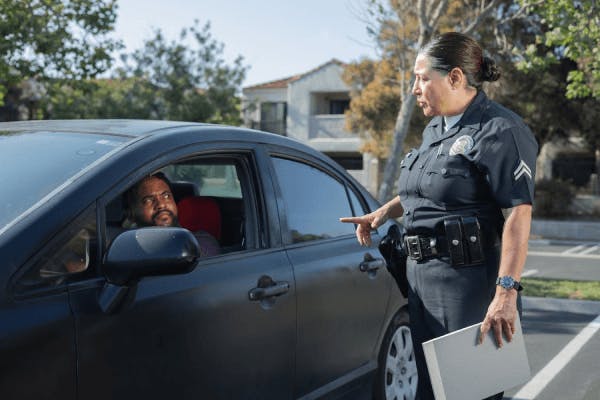
By articulating themselves clearly, security officers guarantee that your workforce understands the expectations and guidelines, enhancing compliance and overall safety.
They also need to be able to communicate with anyone who’s agitated, upset, or uncooperative. With the help of active listening, empathy, and calm verbal communication, they’ll be able to defuse tensions and resolve conflicts better.
The first step to improving the communication skills of security guards can be accomplished by continuously training them. This is where EdApp can help you get started.
EdApp is a security guard training tool that upskills your security officers. It has a vast library of communication training courses, including Security Roles in Communications and Effective Communication. These security guard skills training courses take advantage of microlearning, gamification, and mobile learning to make the training experience fun and engaging.
Get started on your security guard responsibilities and communications training. Join EdApp today!
2. Observation and Awareness
The ability to observe and maintain situational awareness is a must-have skill for security officers. Developing keen observation skills involves being attentive to details, recognizing suspicious behavior, and identifying potential threats.
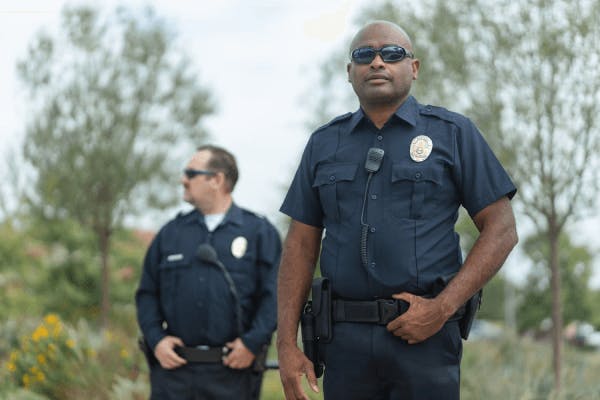
Through attention to detail, facial expressions, and environmental cues, security officers can detect potential threats or indicators of criminal activity. This heightened level of observation allows them to take preventive measures, report suspicious incidents, and mitigate security risks before they escalate.
With this skill, your security guards can also anticipate potential hazards, identify vulnerable areas, and take proactive measures to guarantee the safety of people and property. Situational awareness also allows them to coordinate effectively and quickly with other team members, emergency responders, or law enforcement agencies.
You can practice improving your officers’ observation skills by conducting regular drills and engaging in scenario-based training exercises. Having practical exercises helps them adapt to different types of situations and instantly correct any wrong behavior or course of action.
3. Critical Thinking
Security agents are frequently confronted with difficult scenarios that demand fast thinking and problem-solving talents. Developing critical thinking skills lets security officers assess risks, make sound decisions, and respond appropriately in emergencies. This skill allows them to adapt to changing circumstances, make timely decisions, and mitigate security risks efficiently.
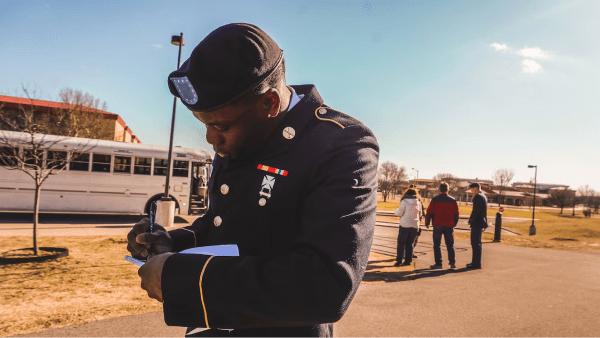
Secondly, critical thinking allows security officers to analyze security gaps and vulnerabilities within an environment. By assessing physical structures, access control systems, and surveillance measures, security officers can identify areas that require improvement or reinforcement.
Engaging in mental exercises, analyzing case studies, and participating in role-playing scenarios can help enhance your officers’ critical thinking skills.
4. Conflict Resolution
Security officers need to know how to resolve conflicts since they're frequently confronted with difficult and potentially volatile circumstances. By being proficient in this skill, they can de-escalate stressful situations and avoid further escalation by applying appropriate de-escalation techniques. They’ll also be better equipped to restore order once de-escalation happens.
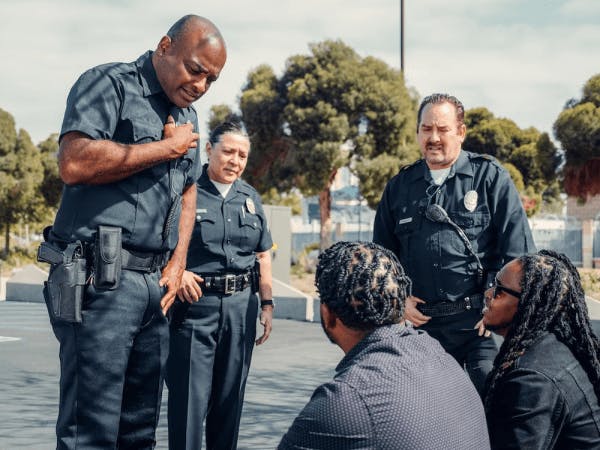
Conflict resolution also helps them maintain a positive and cooperative environment. This is done by actively listening to all parties involved, understanding their perspectives, and facilitating open dialogue.
Seek out training programs that focus on conflict resolution and practice using these techniques in realistic scenarios.
Another way you can make sure your security guards are experts at conflict resolution is through EdApp’s Practical Assessments. With Practical Assessments, you can verify their conflict resolution skills while on-the-job. To get started with Practical Assessments, simply scan your team member's QR code and effortlessly mark off items, offer comments, and pass/fail the trainee—all in real time.
5. Physical Fitness
Physical fitness directly impacts their ability to respond quickly and effectively to ongoing situations. They may need to chase or apprehend suspects, perform physical searches, or respond swiftly during emergencies. Being physically fit lets security officers do these tasks efficiently, reduces the risk of injury, and guarantees their own safety as well as the safety of others.
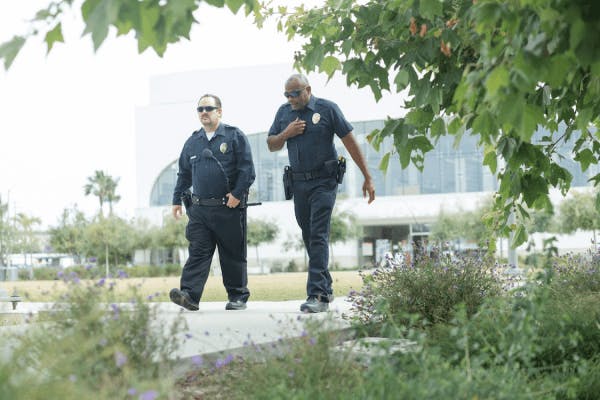
Security officers who’re physically fit are also more likely to remain alert, make quick decisions, and respond effectively to evolving situations.
Regular exercise, strength training, and cardiovascular workouts contribute to overall fitness and stamina. Maintaining a healthy lifestyle enhances physical performance and gives your officers the ability to handle physically demanding situations with ease.
6. Technology Proficiency
In today's technologically advanced world, security officers must be familiar with various security systems and technologies. They need to be able to operate monitoring systems like video surveillance cameras, alarms, and control panels.
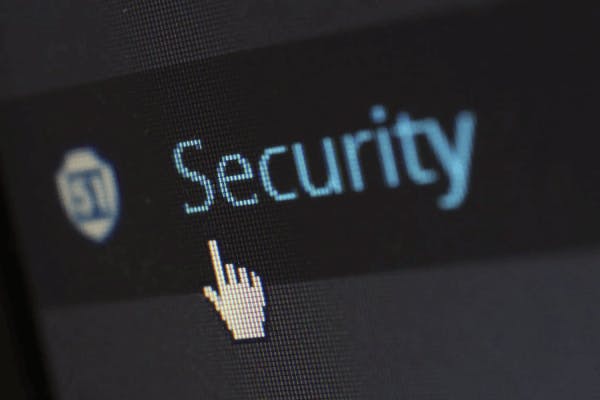
By actively seeking training and staying informed about emerging technologies, security officers can adapt to new security challenges and implement innovative solutions. They can apply technology to streamline security processes, improve response times, and enhance overall security measures.
To train your officers on the newest tech, it can be a good idea to give them training manuals and training on system updates. Since training manuals detail step-by-step instructions and present graphics and photos, this will help them understand the systems a lot better. On the other hand, system update training will keep them up-to-date with the latest in security tech.
7. Legal Knowledge
A solid understanding of relevant laws and regulations is crucial for security officers to perform their duties within the legal framework. They need to know the laws related to privacy, search and seizure, trespassing, and use of force, among others.

Understanding these will help them work with law enforcement agencies better, as well as avoid possible litigation on their end. Security officers can make sure that their actions are within legal boundaries, protecting both themselves and the individuals they interact with. Legal knowledge also helps security officers make informed decisions when handling incidents, making sure that their actions align with the requirements of the law.
Familiarize your security officers with local, state, federal, and national laws pertaining to the security industry. Attend workshops and seminars to stay updated on changes in legislation and secure compliance with legal requirements.
8. Emergency Response
Security officers are often the first responders during emergencies. Security officers with strong emergency response skills can swiftly assess and respond to various types of emergencies, including medical incidents, fires, natural disasters, or security breaches. Their ability to act decisively and efficiently is crucial in safeguarding lives and giving a timely response to critical situations.
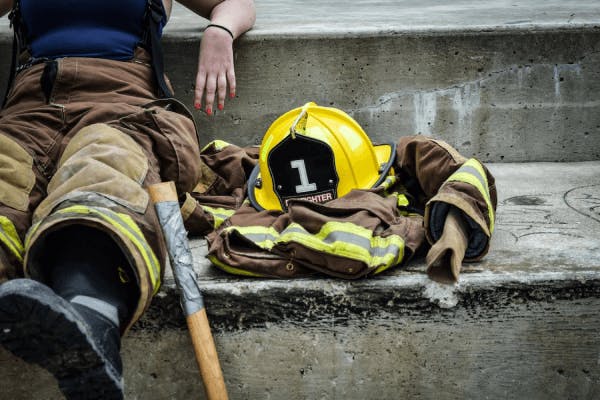
Training them on emergency response protocols such as CPR, first aid, and evacuation procedures is a great way to improve their emergency response skills. They need to also participate in certified training programs and regularly refresh their knowledge to be prepared to handle various emergency situations effectively.
9. Customer Service
Security officers often interact with visitors, employees, and stakeholders on a daily basis. Displaying exceptional customer service skills fosters a positive environment and enhances the overall experience of those under your protection. Effective customer service skills equip security officers to handle situations with empathy, professionalism, and courtesy, guaranteeing that both your staff and customers feel valued and respected.

If you’re looking for some customer service training courses, EdApp has a wide variety of courses for you to choose from. To get started, you can check out these courses: Customer Service: Handling Complaints, Creating a Positive Customer Experience, and Dealing with Difficult Customers
10. Professionalism and Ethics
Security officers often serve as the first point of contact for visitors, employees, and stakeholders. That’s why professionalism and ethics are essential skills for security officers as they directly impact the trust and credibility of your organization.
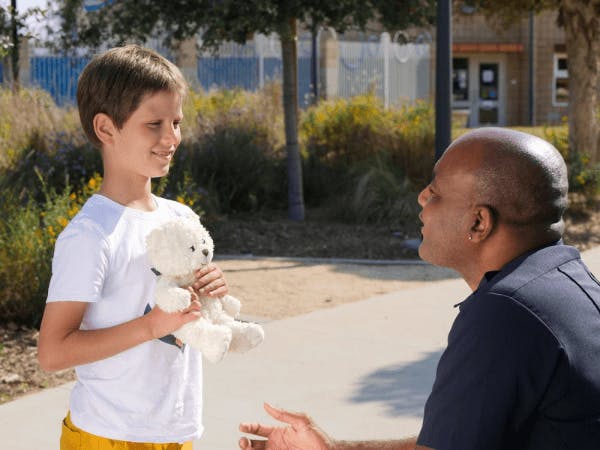
Professionalism includes qualities such as punctuality, maintaining a neat appearance, following proper protocols and procedures, and respecting confidentiality. Ethical conduct, on the other hand, includes honesty, integrity, respect for human rights, and adherence to legal guidelines.
You can train your officers’ professionalism and ethics by reviewing your code of conduct and ethics with them on a quarterly basis. This will help them remember the type of organization that you’re striving for as well as the behaviors they need to have when representing your organization.
EdApp is a mobile learning management system designed for today’s digital habits, delivering more engaging and effective micro-learning directly to learners anytime and anywhere.
Sign up for this security officer training tool today.
Author
Stephanie Escuadro
Stephanie is an eLearning content writer for SC Training (formerly EdApp), a microlearning solution designed for today's digital habits. She creates content about cutting-edge learning technologies and resources to help companies deliver great training experiences. When not absorbed in writing, she spends her time taking care of her dog and binge-watching.
